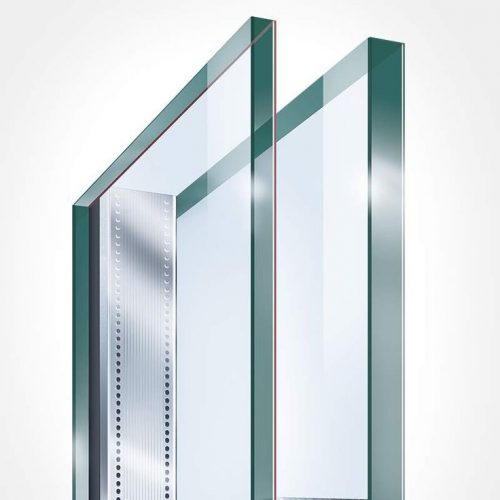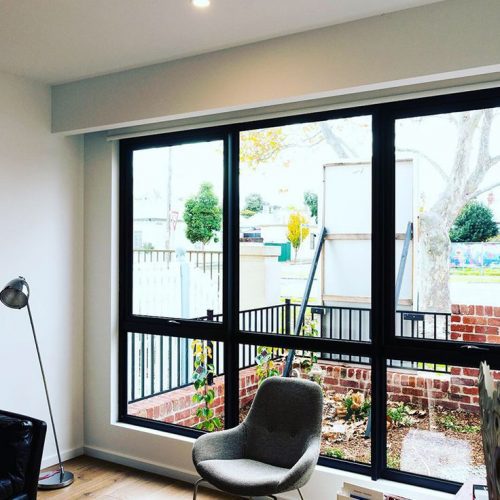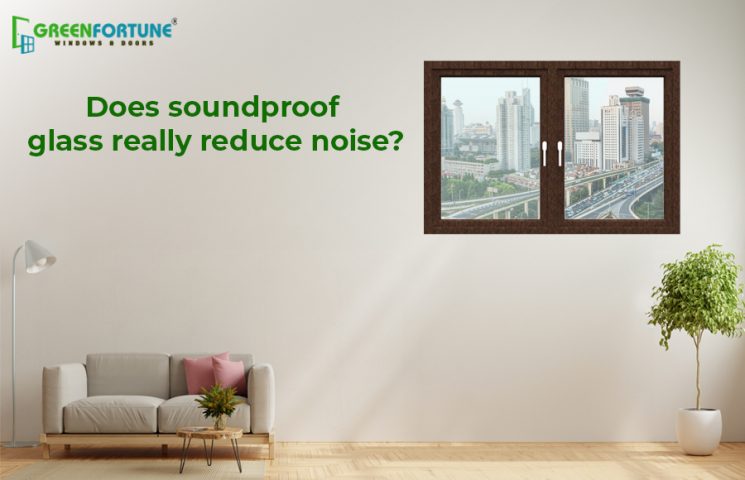
Top 5 Benefits of Using Façade Glass in Modern Architecture
December 7, 2024
How to Choose the best steel door for home?
December 11, 2024Your home should be a peaceful retreat where you can relax after a long day. However, with the increasing noise in our cities, this peace is often hard to find. Noise pollution, once a concern only for those living near busy roads, has now spread to quieter streets, becoming a widespread problem of urban life.
Constant exposure to loud noises can harm your hearing, cause stress, disrupt sleep, and lead to fatigue. Whether it’s traffic sounds, construction noise, lively neighbours, or a bustling neighbourhood, the solution lies in using soundproof or acoustic glass for your windows.
Soundproof glass can significantly reduce the noise entering your home, helping you enjoy a calmer and more restful environment.
Let’s look at how it works and why it could be the right choice for you.
Also read: What is a tempered glass window and how does it protect your home?
What is soundproof glass?
Soundproof glass is designed to reduce noise effectively. It consists of two layers of glass bonded together with a thin layer of polyvinyl butyral (PVB) in between. This PVB layer not only holds the glass together but also absorbs sound, preventing noise vibrations from passing through. The thickness of soundproof glass can be customised based on how much noise reduction you need, making it a great choice for creating a quieter and more peaceful space.

Source: Pinterest
How is soundproof glass made?
Soundproof glass is manufactured using two main methods to ensure it effectively blocks outside noise. Here’s a simple explanation of its key manufacturing features:
Using a Film
Soundproof glass is created by bonding two layers of glass with a layer of polyvinyl butyral (PVB) in between.
- The PVB layer holds the glass layers together, giving it the look of a single pane.
- It absorbs sound and reduces the energy of sound waves passing through the glass.
- This design helps block outside noise and provides effective insulation for the window frame.
Insulated Glass Units (IGU)
An IGU consists of two or more glass panes separated by a spacer for insulation.
- The space between the panes can be adjusted based on insulation needs and may be filled with an inert gas for better performance.
- Double-glazed soundproof glass provides both soundproofing and insulation, while laminated soundproof glass adds extra security along with noise reduction.
Source: Pinterest
Benefits of soundproof glass
- The biggest benefit of soundproof glass is its ability to block outside noise, such as traffic, construction, or loud neighbours. It reduces noise by up to 90%, creating a quieter and more peaceful environment in your home or office.
- Soundproof glass is a type of laminated glass known for its strength and durability. Thanks to its inner PVB layer, it doesn’t break easily. Even if it does, the glass pieces stay attached to the PVB layer, preventing shattering and reducing the risk of injury. Additionally, it helps maintain privacy by keeping indoor sounds from escaping through the windows.
- The sturdy construction of soundproof glass makes it harder for intruders to break through. With multiple layers and varying thickness, it provides an added layer of security for your home.
- Soundproof glass with a Low-E coating helps maintain comfortable indoor temperatures by reflecting heat away in summer and keeping warmth inside during winter. This reduces reliance on heating or cooling systems, lowering energy bills.
- Laminated soundproof glass blocks harmful ultraviolet (UV) and infrared (IR) rays. This protects your health and prevents furniture, carpets, and curtains from fading due to sun exposure.
- Soundproof glass is available in various styles and can complement any home or office design, whether you prefer modern sliding windows or classic frames.
Also read: Maximizing Fresh Air and Natural Light
Why do you need soundproof glass?
Constant noise, like honking cars, traffic, or loud music, can be very annoying, especially when you’re trying to focus or sleep. But imagine if you could block out those sounds and enjoy peace and quiet sounds like a dream, right? With soundproof glass, you can make that dream a reality in your home or office.
Soundproof glass works by dampening sound waves and reflecting them back to their source, preventing noise from passing through. This helps protect you from the harmful effects of loud noise, which can impact your health more than you might think.
Research shows that noise pollution can lead to stress, high blood pressure, irritability, memory problems, and other health issues. That’s why installing soundproof glass in your windows has become an important way to improve your well-being.

Source: Pinterest
Also read: https://www.medicalnewstoday.com/articles/noise-pollution-health-effects
Final Thoughts
If you want to reduce noise and enjoy a more peaceful environment, soundproof glass is a great choice. Whether it’s for your home or office, it makes life more comfortable and relaxing. Consider upgrading your windows or sliding doors with soundproof glass to experience the difference it can make!
Also read: How to Clean Sliding Window Tracks?
GreenFortune: Your Trusted Partner for Quality uPVC Windows and Doors
At GreenFortune, we provide premium uPVC windows and doors at affordable prices. Our wide range of window designs is crafted to blend durability with aesthetic appeal, making them a perfect fit for any home.
Whether you're renovating your current home or constructing a new one, reach out to us to explore our uPVC window options. Partner with GreenFortune to enhance your space’s comfort, energy efficiency, and style with our top-quality uPVC windows.
FAQ’s
What is soundproof glass called?
Soundproof glass is also known as acoustic glass or noise-reducing glass. It is specially designed to block or reduce outside noise. This type of glass is often used in windows and doors to create a quieter and more peaceful environment.
How thick is soundproof glass?
The thickness of soundproof glass typically ranges from 6mm to 12mm, but it can vary depending on the level of noise reduction needed. Thicker glass or multiple layers may be used for better sound insulation. The overall thickness can also depend on whether it's double or triple-glazed.
How do you install soundproof glass?
To install soundproof glass, measure the window frame, remove the old glass, and fit the new soundproof glass into the frame. Seal the edges with high-quality seals or gaskets, secure the glass in place, and check for any gaps to ensure effective noise reduction. Professional installation is recommended for best results.

